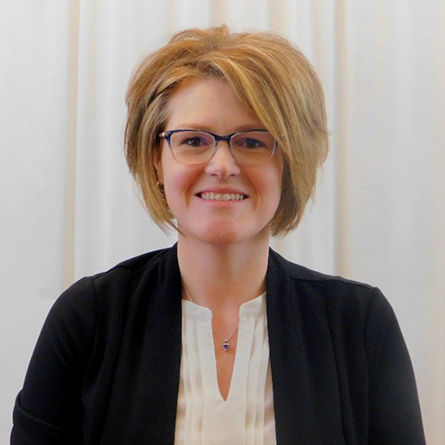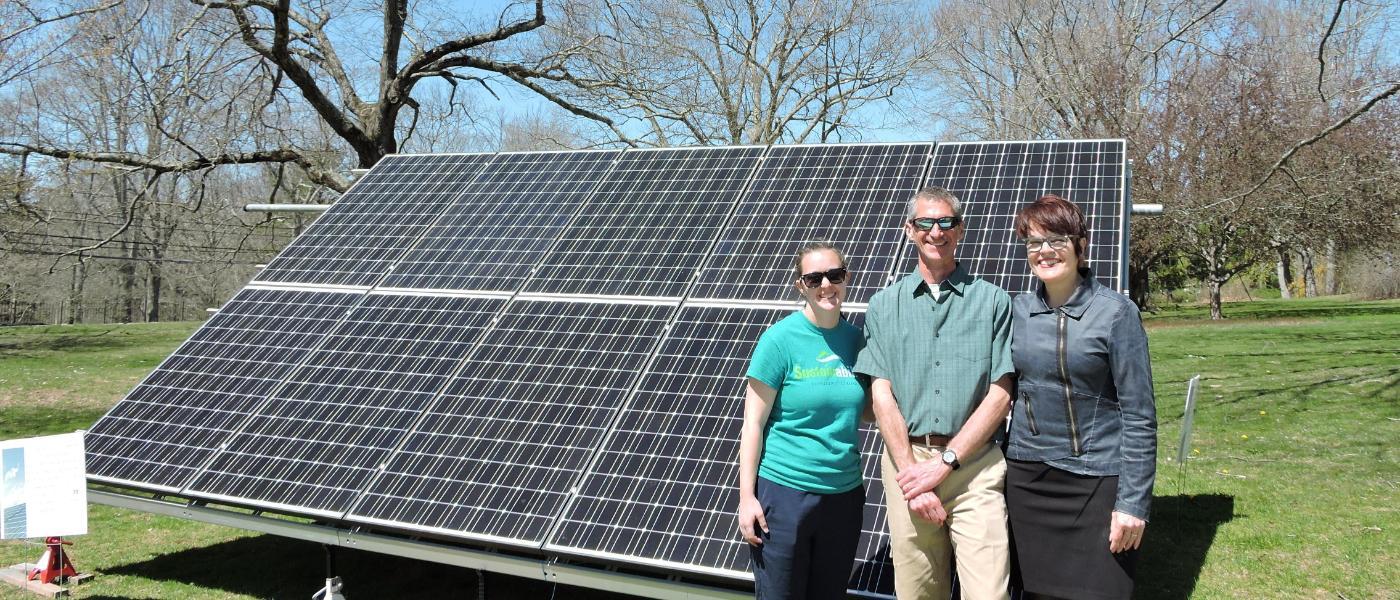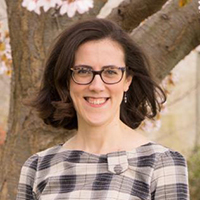
Connecticut College celebrates Earth Day with a pledge to become carbon neutral by 2030
Speaking to students, faculty, staff and invited guests who gathered at Chapel Green to celebrate Earth Day, Conn President Katherine Bergeron announced the College’s commitment to zeroing out its carbon footprint.
“Today is the day we set aside to honor our individual and collective commitment to our planet,” Bergeron said, noting that Earth Day is a tradition that began about 50 years ago.
“The stresses on our planet have only multiplied in the past half-century, making our collective responsibility at this moment even more urgent.”
To respond to this urgency, Bergeron said that the College has set a goal to “achieve carbon neutrality by the year 2030.”
“Net zero by 2030,” she emphasized to great applause.
Conn has a long list of projects designed to reach net neutrality by reducing waste, promoting a shift to electric cars, lowering energy use across campus and limiting vehicular traffic to create a greater campus experience.
Conn pledged to take an environmental, social, and governance approach, known as ESG, to the College’s investment strategy in order to reduce risk and improve the long term returns on the portfolio. Conn also plans to increase diversity and equity in its portfolio through more inclusive investment practices.
Bergeron said that the “College takes seriously its responsibility to our collective future.”
The campus celebrated these announcements with music, food trucks and tours through Conn’s Arboretum.
At Conn, sustainability is a framework by which long-lasting solutions to local and global challenges are developed through understanding the connections among social equity, environmental stewardship and economic wellbeing and including all three within all decision-making and strategic planning processes.
Current sustainability efforts include providing hands-on learning opportunities for students through the Sustainability Fellows program; working with faculty to integrate sustainability across the curriculum, educating the campus community on sustainable practices and collecting and analyzing campus sustainability data.
Doug Thompson, the Rosemary Park Professor of Geoscience and Environmental Studies and the Suzi Oppenheimer ’56 Faculty Director of the Office of Sustainability, and Assistant Director of Sustainability Margaret Bounds, outlined in more detail the steps Conn will undertake to fulfill its pledge to net neutrality.
The largest of these projects is a planned solar array south of the tennis courts. Conn wants to wean itself off gas-powered vans and to “electrify” the transportation fleet, while installing five more electric charging stations bringing Conn up to seven total. Each charging station has the capacity to charge two cars at a time. Thompson also noted improvements to Williams Street that will hopefully increase bike access to campus. Additionally, Conn plans to save on natural gas through heating and cooling repairs, adding air source heat pumps and adding more LED lighting on campus.
In July 2021, Connecticut College earned a Gold rating from Sustainability, Tracking, Assessment and Rating System (STARS), a program of the Association for the Advancement of Sustainability in Higher Education (AASHE). This puts Conn in the top 15% of the 1000-plus institutions currently rated by AASHE.
A few of Conn’s past sustainability projects include the following:
- Supported a sustainable, non-invasive land-management project that brought goats to the College to clear invasive knotweed as part of Conn’s Waterfront Restoration effort. The idea evolved from a senior integrative project crafted by Shefka Williams ’21 through the Goodwin-Niering Center for the Environment, and was supported by Miles Sax, the Charles and Sarah P. Becker ’27 Arboretum Director.
- Adorned the roof of the service building with 130 solar panels to provide two-thirds of the building’s power. The project was supported by Rocky Ackroyd ’83 and his company Blue Sun and the College’s sustainability revolving fund.
- Installed a SmartFlower, just south of Freeman House. This high-tech, sculptural solar contraption–which is designed like a flower, with petals (solar panels) that fold up at night and unfurl at daybreak–is connected to the College’s central power supply and produces 5,000 kWh each year.
- The George & Carol Milne Assistant Professor of Biology Maria Rosa received a $10,000 grant from Kenny Chesney’s No Shoes Reefs to partner with The Reef Ball Foundation to pilot a reef ball program in the Thames near Conn’s new docks. Rosa’s students helped build and place reef balls,: artificial reefs that serve as habitat for local fish; help rebuild shoreline by minimizing erosion and promoting the growth of plants; and create a protective barrier in the water that minimizes wave action that will protect the docks.


